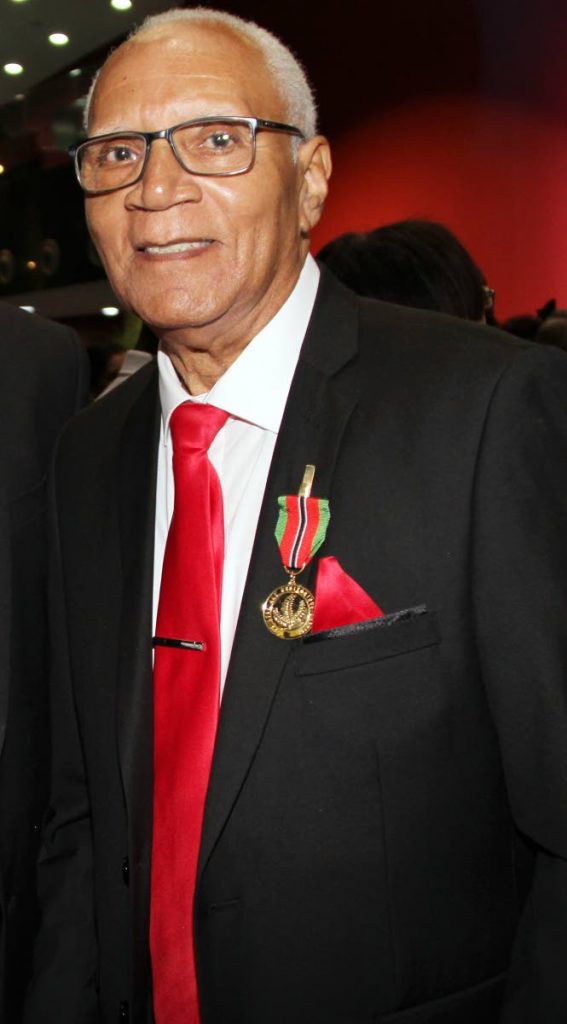Editors agonise to get it right

NEWS editors spilled their guts Wednesday to show how hard the media work to ensure truth – or at least a balance of rival views – before publishing their news stories, at the second day of a conference on Freedom, Facts and Fake News held by the University of the Southern Caribbean at the Radisson Hotel, Port of Spain.
“It is thankless torture,” said panellist Julian Rogers, managing editor of Guardian Media Ltd. “We are not prepared to put out anything unless it is verified. It is such a challenge, in our environment where people stand in the way of us verifying.”
He recalled meeting a Cabinet minister at a recent function who had asked him, “What mischief are you up to today?” Rogers assured listeners that journalists do not have breakfast and go downstairs to consider, “Who can we mess up today?”.
In contrast, he said a journalist who makes an error will apologise but then for days later will feel haunted by it.
In many ways, traditional media was caught between the “rock” of social media and the “hard place” of unco-operative politicians, several speakers suggested.
British Broadcasting Corporation (BBC) radio broadcaster Neil Nunes said facts are triple-checked for accuracy before broadcast, and at Tuesday’s session had said the BBC has a legal team on standby 24/7, including a night-duty attorney.
Newsday editor in chief Judy Raymond said local media houses do not have the BBC’s vast resources to do extensive fact-checking, such as cross-referencing a public figure’s statement with remarks he/she had made five years ago. She said reporters sometimes resort to writing what they feel is a “balanced” story in that opposing views are reported, but added, “But you are not informing the reader what is correct.”
Raymond also said it can be hard to get a minister to comment on a story, as reporters often have to send a text and then await a reply at his/her convenience, regardless of deadlines.
“We have to deal with politicians who may be very suspicious of the media.”
Likewise for a reporter trying to do a story for 4 pm that day, requests to public agencies under the Freedom of Information Act take many days to elicit a response, she lamented. Raymond painted a scenario of a reporter probing a company polluting a river, only for the story to be quashed by media owners concerned about loss of advertising from that company.
Otherwise, Raymond noted the strange phenomenon of local people considering themselves to be very sophisticated consumers of news, yet also sometimes being very gullible in believing unfounded statements coming across on social media, such as that certain types of fruit juice can cure cancer.
“There’s a mix of extreme cynicism yet a readiness to believe the wildest conspiracy theories.”
She said many people don’t know the work that journalists do. “There can be more than two sides to a story, but in TT it’s hard to get.” She said fake news on social media is hugely affecting the work of journalists, whereby people re-post bits of information that may be fun, interesting or scandalous, but without knowing the source or its reliability. Raymond said journalists use social media as an initial source of information, but check up on it.
Nicole Duke-Westfield, head of the Public Relations Association, said news often has some germ of truth in it, while Nunes said it is often truth that is distorted.
Newsday editorial consultant Jones P Madeira quoted US publisher the late Tom Rosenthal to say journalism’s obligation is to the truth and its essence is verification. He recalled holding back from broadcasting unconfirmed rumours of the death of former Grenada leader Maurice Bishop, a saga that taught him caution in what he put out.
He also pointed out, “I’m not one of those who believes that everyone who writes something is a journalist.”
Andy Johnson, Power 102 FM head of news, related tales of fake news over the years in TT politics, namely E-mailgate, unfounded rumours of two ex-Cabinet ministers fleeing TT after the 1986 general election, and a former minister being blamed for illegal items in his water tank that had been planted by other, unscrupulous individuals.


Comments
"Editors agonise to get it right"